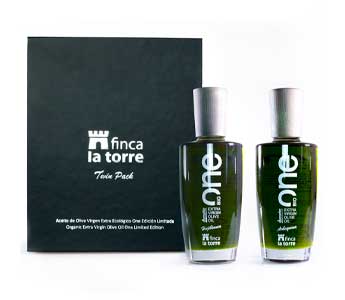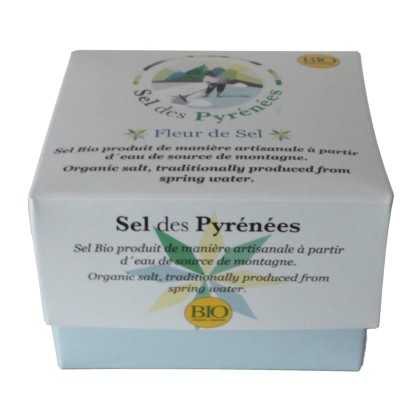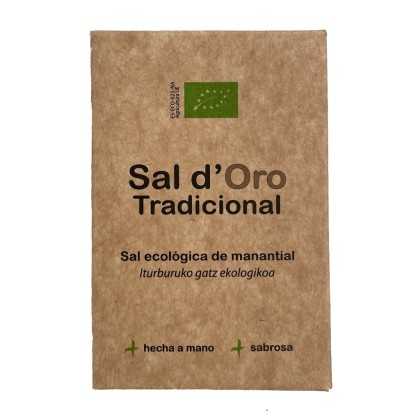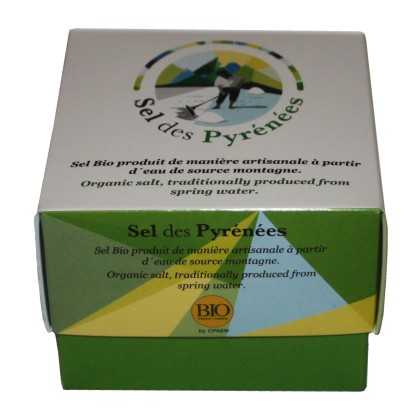Sel des Pyrénées
Sel des Pyrénées is known for its organic mineral salt, the "white gold of Spain", hand-extracted from a natural salt source in the Pyrenees. It is the only certified organic salt in the world, rich in potassium, magnesium and iodine. Although its specialty is salt, this high-quality salt is perfect for enhancing the flavor of any dish seasoned with extra virgin olive oil, creating exquisite combinations.
Sel des Pyrénées – Salt from the Pyrenees
Salt from the Pyrenees is something very special, as it is the first salt in the world to be officially designated as organic salt. And that's no coincidence. This is because Sel des Pyrénées is extracted directly from nature using traditional handcraft methods. It does not need to be processed like conventional table salt. Bleaching processes are omitted, and because various cleaning processes are also dispensed with, the Salt from the Pyrenees contains all the natural minerals it has been able to accumulate over many millions of years.
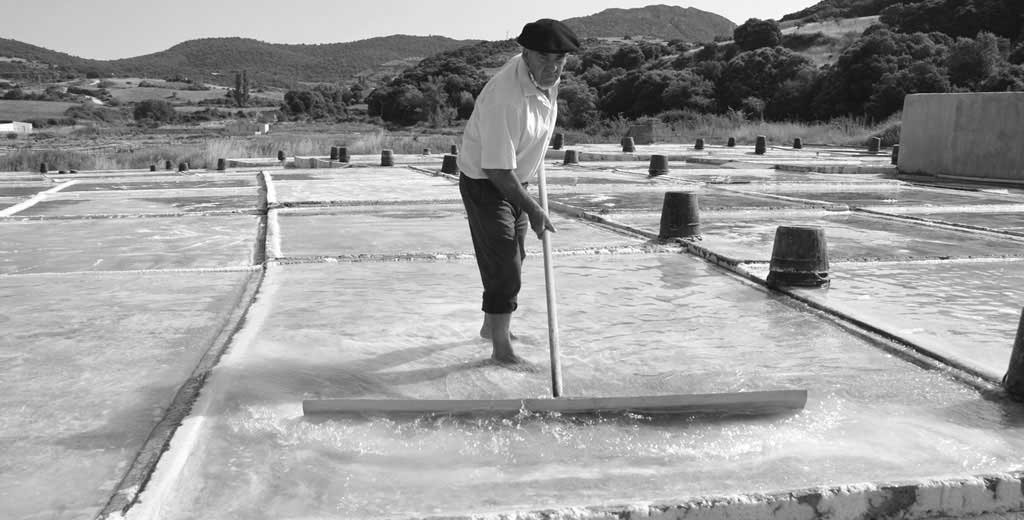
Salt Production in General
Essentially, all salt is sea salt and consists mostly of sodium chloride. The consumer primarily distinguishes between sea salt and rock salt.
- To obtain sea salt, seawater is channeled into shallow basins. There, it evaporates with the help of sunlight. Shortly before the water has completely evaporated, the sodium chloride can be skimmed off and dried.
- Rock salt is salt that comes from a primordial sea. Over time, various rock layers have formed over and around the salt layer. The rock salt is either mined underground, or the salt-bearing rock layers are drilled and the salt is washed out with water. In the best-case scenario, as with Sel des Pyrénées, nature does the washing out itself.
How did the Salt from the Pyrenees get into the ground?
More than 220 million years ago, in the late Triassic period, what is now Spain was half covered by the Tethys Sea. Over time, the great continent split into the continents we know today. In some places, the primordial sea dried up, creating salt layers. These layers were gradually covered by clay and other rock layers.
Today, Sel des Pyrénées is located at a depth of about 3,000 meters. Underground rivers wash the salt out of the rock and bring it to the earth's surface. These so-called brine springs consist of water from the underground watercourses, which is not only very salty but also rich in minerals that it has absorbed on its way through the rock layers.
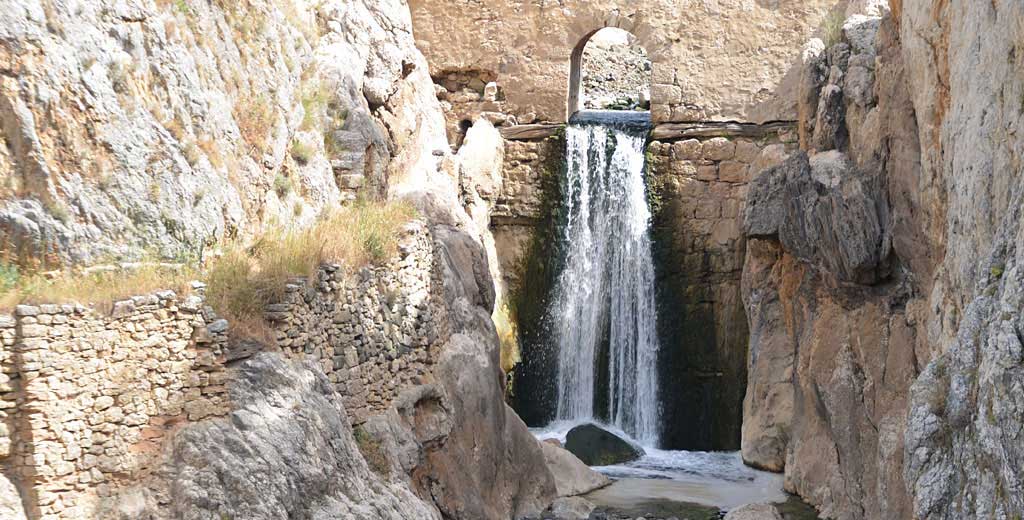
The traditional production of Sel des Pyrénées in the Salinas de Oro
While salt used to be a very valuable and expensive commodity, today it is affordable for everyone. Commercial mining led to small, traditional salt pans, like the "Salinas de Oro," no longer being profitable and having to close. Only in recent times, as more value is placed on natural products, has traditional salt mining been able to regain a foothold.
As was common in the times of the ancient Romans, the Salt from the Pyrenees is extracted by hand. The "Salinas de Oro" salt spring is located in Navarre, Spain, in the foothills of Urbasa and Andía, two nature reserves. After resuming salt production, the salt pan has been run as a family business by the Gironés brothers for three generations.
The mineral-rich salt water from the brine spring is first channeled into small basins in the traditional way. There, nature, with sun and wind, takes care of the evaporation of the liquid. On the basin floor, the Sel des Pyrénées remains with all its valuable minerals. With manual labor and a scraper, the workers of the salt pan, the "salt gardeners," harvest the high-quality organic salt.
What is the Salt from the Pyrenees made of?
Like any salt, Sel des Pyrénées consists mainly of sodium chloride. However, while standard table salt has a very low proportion of other minerals, the organic salt from the Pyrenees can boast the following values:
- Sulfates: 12,007.2 milligrams per kilogram. (Normal sea salt contains 960 mg of sulfates per kg)
- Potassium: 80.83 milligrams per kilogram. (Standard sea salt contains a maximum of 12 mg of potassium per kilogram.)
- Magnesium: 177.6 milligrams per kilogram. (Ordinary sea salt, with a maximum of 19 milligrams per kilogram of salt, is well below this value.)
- Calcium: 4,941.8 milligrams per kilogram. (Sea salt contains only 140 mg of calcium per kilo.)
- Iron: 0.5 milligrams per kilogram. (At 0.3 milligrams per kilogram, sea salt is also far below this value.)
- Iodine: 9.52 milligrams per 1000 grams. (One kilo of standard sea salt contains only 0.5 milligrams of iodine.)
It is noticeable that the primordial sea salt, Sel des Pyrénées, has all important minerals in much higher quantities than ordinary sea salt. Its iodine content is even more than 20 times higher! Thus, the organic salt from the Pyrenees can in good conscience be called a natural iodine salt.
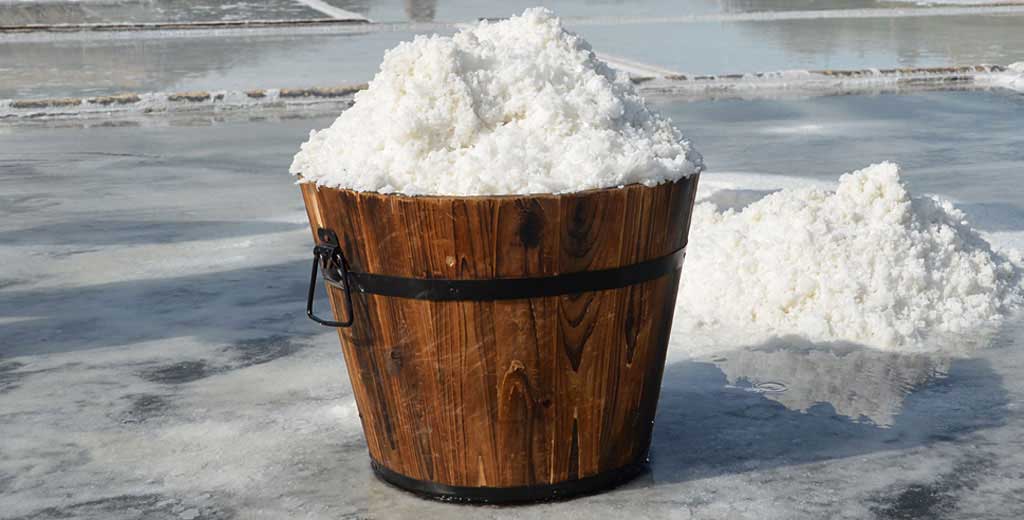
All the benefits of Sel des Pyrénées at a glance:
- The primordial sea salt is rich in natural minerals and trace elements.
- The Salt from the Pyrenees is obtained in a traditional way by hand.
- No substances are artificially added to the world's only organic salt.
- Sel des Pyrénées is harvested ecologically, without any soil pollution.
- The organic salt from the Pyrenees is a very rich and flavorful salt.
The organic salt from the Pyrenees is a unique salt worldwide.

